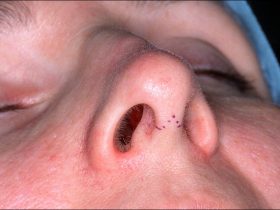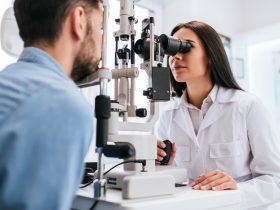Erectile Dysfunction (ED) is simply the inability to have and maintain an erection strong enough for intercourse. Having erectile dysfunction from time to time is not always a signal of something more serious. However, if erectile dysfunction has been an ongoing problem, it may contribute to decreased sexual satisfaction, stress and affect your overall self-confidence. If you are having trouble getting or keeping an erection or experience other symptoms that may relate to this condition, see your doctor immediately to find out if there is a physical problem causing the dysfunction.
Men who suffer from erectile dysfunction are more likely than the average man to experience heart problems. In the United States, erectile dysfunction cases are almost twice as common as those of heart disease. This is because men who have erectile dysfunction are at higher risk for heart problems than the average person. Certain risk factors are associated with heart disease, including being overweight or obese, having high blood pressure, high cholesterol or diabetes, and using tobacco or other drugs that are linked to heart problems.
Men who have low self-esteem are also at a higher risk for experiencing sexual problems. In many cases, men who have had erectile dysfunction for a long time may feel that they don’t have any sexual desire, making sex a painful activity. This may include avoiding sexual contact in order to protect one’s sexual health. Low self-esteem is a common problem among sexually active older men, which may include contributing to the increased rate of erectile dysfunction cases among middle-aged men.
There are some medications that are associated with the risk of erectile dysfunction, including testosterone medications. Low levels of testosterone are common among older men, and these medications may help to treat this disease, but they are not a true solution. These low levels of testosterone are actually symptoms of other medical conditions, including cancer and diabetes. Because of this, low testosterone levels are often treated with medication that actually has side effects that mimic ED.
A better approach to treating erectile dysfunction would be to treat the underlying condition and improve sexual function through diet, exercise, stress reduction, and supplements. If ED is caused by an underlying medical condition, then there may be other lifestyle changes that can also help. ED can be treated with medications, but it is important that any medication that you take be recommended by your doctor. Discuss your options with a well trusted Tampa clinic for erectile dysfunction so that your treatment plans are in line with your health care needs.
While medications may be helpful for some men with erectile dysfunction, they should only be one part of the overall plan for improving your health. Exercise and diet play an important role in reducing the risk of heart disease and other health issues. Combating erectile dysfunction through these two different treatment options is a good strategy. In the end, you should be able to combine lifestyle changes with your ED treatment options to bring you the results you desire.
Erectile Dysfunction, or ED, is the most frequent sex problem that men report to their physician. It affects nearly as many as thirty million men worldwide. Erectile Dysfunction is defined as difficulty achieving or sustaining an erection that is firm enough for intercourse.
ED causes the inability to achieve or maintain an erection long enough to result in satisfactory sexual intercourse. Erectile Dysfunction can be due to a variety of medical, physiological, and psychological factors. Common causes include cardiovascular disease, diabetes, hypertension, atherosclerosis (narrowing of the arteries that supply blood to the penis), and steroid use. Other causes include excessive masturbation, exposure to radiation, and multiple sclerosis.
There are a few symptoms that may contribute to your condition. Your penis may become slightly flaccid when you experience an erection. Your partner may notice that your penis is unusually soft or that it becomes warm. Your doctor can perform tests to determine the cause of your erectile dysfunction. If your doctor diagnoses you with erectile dysfunction then he will write you a script that will help you tell your story to your partner and to make treatment choices that are right for you.
Treatment includes medications that reduce stress, medicines to strengthen the heart and brain, surgery, or a combination of treatments. A medical doctor may recommend using an erectile dysfunction treatment such as Viagra or Cialis. A less commonly prescribed treatment is a penile prosthesis or penile implant. A penile implant is a surgical device that is placed into your penis in the upper pubic area. Sometimes a penis is just too small and cannot be erected – in this case a prosthetic device may be used instead of a penile implant.
In addition to having a treatment for erectile dysfunction there are also other ways to treat the problem. Many patients find that the side effects of medications or psychological treatments are too overwhelming. Your doctor may recommend alternative treatments such as meditation or hypnosis, which can improve your mood and your ability to focus.
In some cases the underlying cause of your symptoms is physical. Sudden or extreme hormonal changes can cause hormonal changes in the body. Certain drugs, over-the-counter or prescription, can affect the production of testosterone, the male hormone responsible for sexual functioning. Conditions like diabetes and congestive heart failure can contribute to erectile dysfunction. The symptoms of male sexual dysfunction can be embarrassing and frustrating, but they don’t need to ruin your life.










